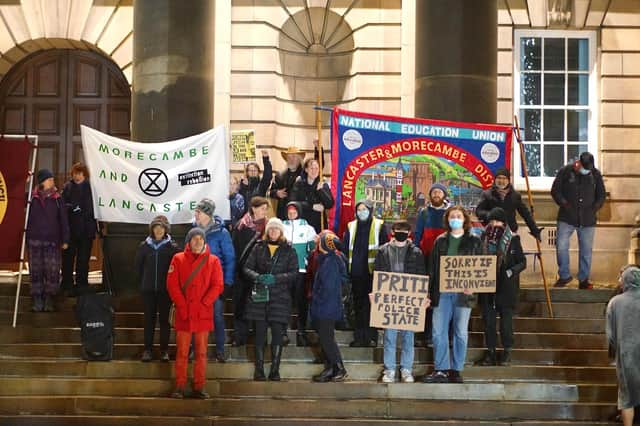Lancaster and Morecambe groups pledge to resist 'undemocratic' new law


The event, organised by the Lancaster and Morecambe Trades Union council, reflected on the lack of national media coverage about this bill, which will restrict the right to protest.
Green county councillor Gina Dowding, who chaired the event, said: “If the Government’s recent amendments to the Police Bill are passed, we are on the path to authoritarianism.
Advertisement
Hide AdAdvertisement
Hide Ad"This is more like what one would expect in Russia – not at all in keeping with the values of a proper democracy.
"Our right to protest against the mistaken polices of Government is an essential part of our democracy. Without the protests at Preston New Road fracking site we would likely not have seen off the fracking industry in Lancashire.
"It is now accepted even by the Government that fracking is not the right way forward for a climate safe future.
"Perhaps most outrageously, the amendments contain new powers to ban named people from protesting. Serious disruption, as the bill stands, could mean almost anything, including being noisy.”
Advertisement
Hide AdAdvertisement
Hide AdEugene Doherty, president of the Trades Union council, said: ‘”A democratically elected government has no right to take away our democratic right to protest. If passed, I pledge to break this law at every opportunity.”
“However it is not a done deal yet,” former MEP Gina added. “There is growing awareness of this Save Our Rights campaign, despite the Government’s attempts to avoid parliamentary scrutiny.
"Green peers and others in the House of Lords are arguing strongly against the restrictive amendments. It will have to go back to the House of Commons. I urge people to contact MPs and Government ministers to express their concerns.”